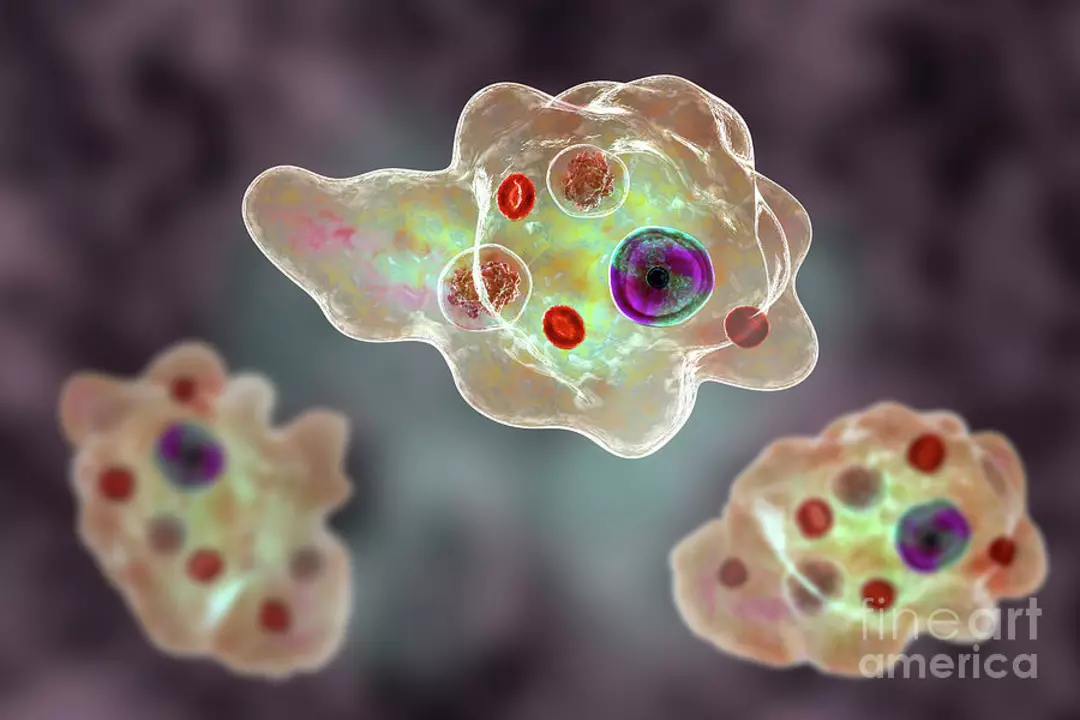Amoeba infections—most often caused by Entamoeba histolytica—can range from mild tummy upset to bloody diarrhea or even a liver abscess. If you’ve had sudden watery or bloody stools after travel, eating street food, or drinking untreated water, don’t ignore it. Early recognition makes treatment simple and keeps complications away.
Doctors start with your symptoms and travel or exposure history. The next step is testing stool for the parasite. Routine stool microscopy can spot cysts or trophozoites, but modern tests like stool antigen assays or PCR are more accurate. Blood tests may show inflammation, and if someone has right‑upper‑quadrant pain or fever, an ultrasound or CT scan checks for an amoebic liver abscess. Tell your clinician about recent travel, raw food, or unfiltered water—those clues matter.
Treatment usually involves two parts: a drug to kill parasites in the gut wall and a second drug to clear any cysts still living inside the intestines. Commonly used medicines include nitroimidazoles (metronidazole or tinidazole) followed by a luminal agent such as paromomycin or diloxanide to prevent relapse and stop spread to others. If a liver abscess develops, doctors may add drainage and targeted antibiotics.
Hydration is crucial—replace fluids and salts if you’re losing a lot of water. Over‑the‑counter anti‑diarrheal drugs aren’t always recommended, especially with bloody stools or high fever; ask a clinician first. Most people improve fast once they start the right medicines, but follow‑up stool testing can confirm the infection is cleared.
Prevention is largely common sense: drink bottled or boiled water in risky areas, avoid ice and raw salads that might be washed in unsafe water, and practice good handwashing—especially after using the bathroom and before handling food. For swimmers, avoid swallowing pool or lake water in regions where amoebic infections are common.
Watch for warning signs that need urgent care: high fever, persistent vomiting, severe abdominal pain, bloody diarrhea, or jaundice (yellow skin/eyes). Those can mean complications like dehydration or a liver abscess. If you have those symptoms, see medical care promptly.
Have you recently returned from travel with stomach issues? Save time: mention destination, timing, and whether you drank local water or ate street food. That helps clinicians decide which tests and treatments are right for you. With quick attention and proper meds, amoeba infections are manageable—and often fully curable.

Amoeba infections have a significant psychological impact on both patients and their families. As a blogger who has researched this topic, I've discovered that the fear of contamination and uncertainty about the future often cause anxiety and stress. Additionally, the physical symptoms of the infection can lead to depression and feelings of isolation. Family members may also experience emotional distress and helplessness as they watch their loved one suffer. Overall, it is crucial to address the psychological aspects of amoeba infections to ensure comprehensive care and support for patients and their families.
View more